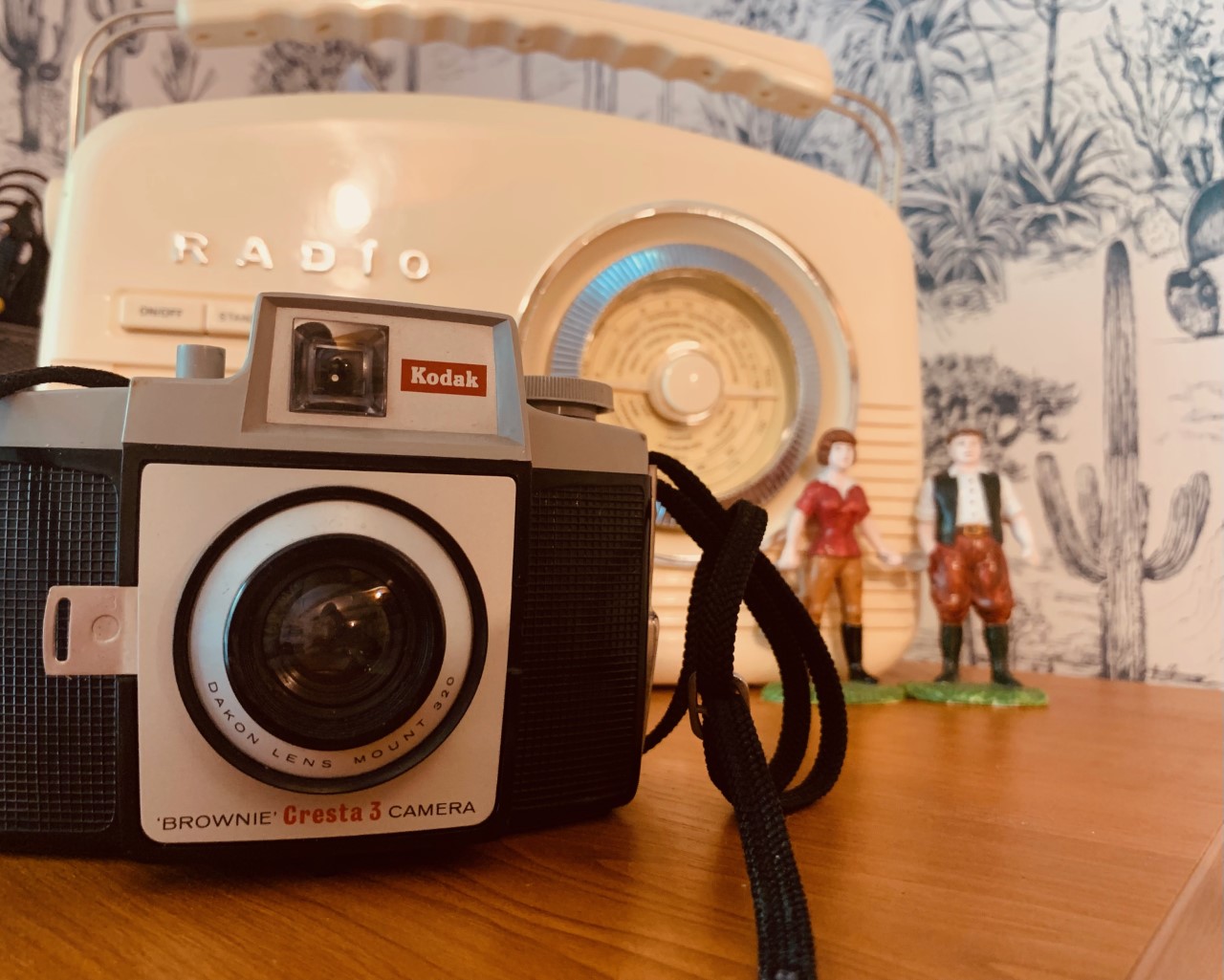
Interim
The cabin at the end of my garden has been trimmed for composing. Through white nets: a broad desk and a banker’s lamp. Chairs ergonomic and punishing; rug, cameras, pinboard, all office engines standing-by at a green light. A heater with a false fire. Wallpaper busy enough to hide notes in its pattern; a vintage model cable car that tracks from one side of the ceiling to the other when wound. Shelves, albums, inkstamps. French typewriter, Italian coffee.
Two figures from the Early Learning Centre’s 90s farming set, in conversation by the radio, have a presence in my novel. The wall behind them offers historical feedback scraps (‘now do less’; ‘but, why do we care?’; ‘in the time it took you to create this apology comic, I’m fairly sure you could have done the assignment’). From the desk, the garden shifts with brush and roses. Everything is primed, everything ready. I don’t work in there.
‘Still or sparkling?’
Sorry?
‘Oh, the joke. Where a guy comes in, reading that, and orders nothing but water the whole time.’
A few years ago in a London restaurant, I had lunch with Tolstoy. The aim, of trying to read War and Peace within three weeks, saw us going everywhere together – meals, travel, a watercolour painting course – for me, the best way to move through that world was never to leave it too long. To never be left alone by it.
It’s taken a while to conclude that this is the track to writing, too. I move around the house but have light roots in the dining room, monitoring for buildup, never letting the desking happen fully. Salt and pepper next to Jansson on the runner. Pens in mugs, dinner candles, pale jazz, working from an impractical carver seat at a table my parents bought second-hand for fifty pence in the eighties. It’s a bad table. Everybody hurts themselves on it – the pens in the mug so stored as to keep them from rolling off the surface, while the desk in the cabin stands level and empty – but when I wrote the last word of the novel’s first draft and looked up, checking for grand shifts in the world’s fabrics, it seemed much more fitting to have finished illogically. This room is also the first indoor space when coming in from the road. My method is such that an idea has to feel almost entirely uncontainable before a mark hits the page, because after that point, its evolution slows down – so this is equally the room in which everything hangs for the dog’s walks (the most efficient accelerant of thought since our spaces closed in last year. Every pandemic-era piece has a little of the potato field). It seems too obvious to point out the performative aspects of a home, especially considering their recent, unprecedented opening – but if a house is a theatre, perhaps the dining table is the stage. Visiting rituals, feasts, displays; routine and occasion at once, the clearing just as vital as the use, that newing, even if the table is old.
Tonight’s show: stacked notebooks from the last year. A garden rose in a thick green glass, looking down. War and Peace as an iPad stand, a jar filled with potato-field pottery shards where once Nutella, the shelf of LPs split open between Bryan Ferry and Louis Armstrong. And a discovery; a small slit in the tablecloth from the claw of a crow which fell through the fireplace in March, and would not leave the table for oatcakes.
I am here but I am not here. Torn, it can still be the great blank page.
Sarah Parfitt is a final year Ph.D candidate on ‘The Contemporary Novel: Practice as Research’.